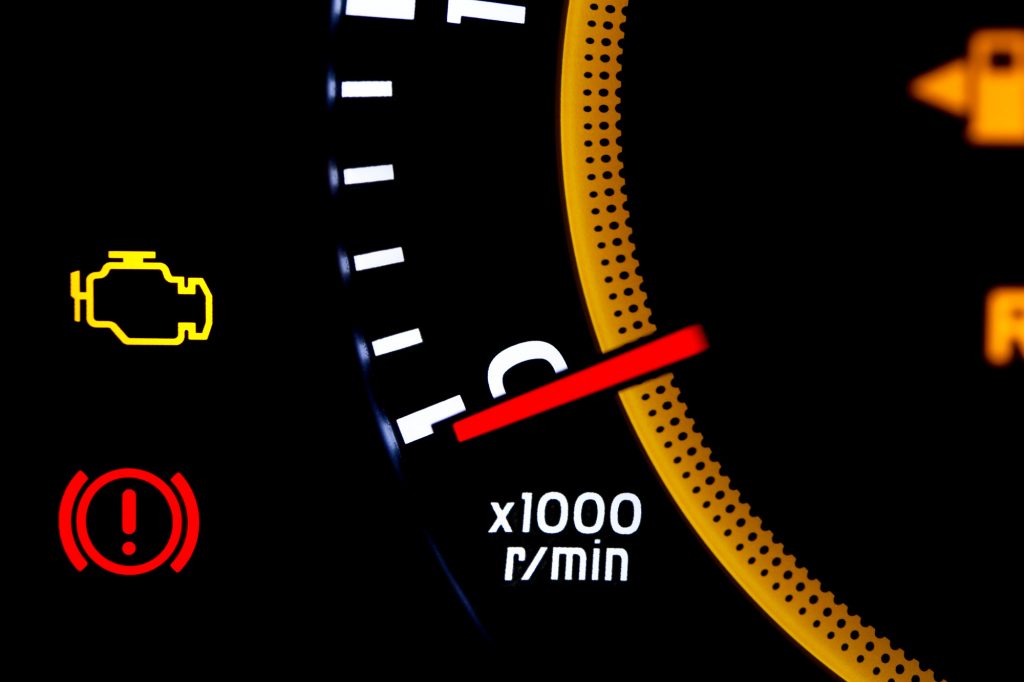
Should you be worried about a check engine light? You might be having this question every time the engine-shaped icon lights orange. It is programmed to turn on when something is wrong.
The vehicle’s electronic brain is made to detect all the problems in your car. Check engine lights can signal a problem with your car-but not always. Here’s what the check engine light means and its possible fixes.
Oxygen Sensor Failure
An oxygen sensor measures unburnt oxygen in the exhaust system. The sensor sends the data to the combustion system to balance oxygen with fuel in the cylinders. If this sensor is not working, check the engine light appears.
In this case, you need to replace the oxygen sensor that is not working. If not replaced, your car will continue to burn more fuel. In the long run, a failed oxygen sensor can have severe damages to other components of your car.
Replacing an oxygen sensor is, therefore, a necessity. You can also replace damaged spark plugs and catalytic converter. These automotive service tips will prevent the check engine light.
Loose Fuel Cap
Check engine light will turn on when you have a loose fuel cap. Every time you fuel your car, you need to tighten the fuel cap.
The fuel cap is an essential component of the fuel system. It plays the role of controlling pressure in the system. It also helps in blocking fumes from leaving the fuel tank.
Check engine is likely to appear after filling-up. In this case, you need to tighten your fuel cap. If this problem persists, you have no option but to replace the fuel cap.
Catalytic Converter Failure
A catalytic converter helps convert carbon monoxide into carbon dioxide and other products. It prevents excess environmental pollution. Carbon monoxide is a harmful gas and is not needed in the atmosphere.
If the catalytic converter is not working, you will see engine lights. This is a simple problem that can be prevented. You need to have a new catalytic converter, and the light will go.
Regular car maintenance can keep your catalytic converter working. You need to ensure your catalytic converter is not clogged.
Discolored smoke from the exhaust indicates an issue with your converter.
Ignition Coil Problems
An ignition coil is a basic component of the fuel system. It generates electricity used by spark plugs to ignite the fuel. A simple malfunction of the ignition coil will trigger a check engine light.
You need to regularly replace your ignition coils to prevent such issues. Replacing spark plugs can also offer some solution to the check engine light. If this does not work, you need to see a mechanic for further analysis.
Even with a very modern car, you will always experience ignition coil failure. However, with a diesel engine, you don’t have to worry about this. You don’t have both spark plugs and ignition coils.
Malfunctioning Spark Plug Wires
Spark plug wires transfer electricity to the spark plug. They connect spark plugs to ignition coils. Without the wires, it will be hard to ignite the fuel.
Most of the vehicles have a single wire. As such, when it gets damaged, the check engine light will appear. Ignition will also not take place.
Lower gas mileage and drop in engine performance explain malfunctioning spark plug wires. This is a problem you can quickly eliminate by replacing such wires.
Mass Airflow Sensor Failure
MAF monitors how much air is entering the engine. It is an essential component of the engine. A Mass Airflow Failure can trigger engine lights.
A rough idle is a sign of Mass Airflow Failure. Other signs include sudden changes in throttle pedal position and trouble starting.
If you have reduced gas mileage and stalling, you need to replace Mass Airflow Failure. As a component of the engine management system, MAF needs to perform optimally.
Vacuum Leak
A vacuum leak is likely to trigger the check engine light. Vacuum hoses usually crack as they age. This happens when they get exposed to intense cold or heat.
Tracing the source of the vacuum leak is time-consuming. If you’re not a mechanic, you can waste precious minutes tracing the leak. The best option is to buy a new one.
Dead Car Battery
A battery is one of the most critical car components. Your car will not start without it. You will struggle to light up the road at night.
Other essential functions such as charging your phone will not be available. A car battery is so important that you need to constantly observe its performance.
Modern batteries last much longer and even come with free maintenance. However, if your battery is consistently failing, you need to get a new one.
Issues With an Aftermarket Alarm
An aftermarket alarm can be a trigger for check the engine light when not correctly installed. It can sometimes drain the car battery. Sometimes the alarm can prevent the car from starting.
These issues are very familiar to many car owners. If you have experienced such issues, you need to have the alarm reinstalled. This time, get a competent mechanic.
It will obviously cost you some bucks to get it properly fixed. However, the peace of mind that comes with this is worth every penny.
Transmission Issues
Check engine light is not all about engine issues. It can reflect other problems with the car. Some transmission issues have been found to illuminate the engine light.
If low transmission fluid is detected, check light will appear. This is resolved by adding transmission fluids.
Should I See a Mechanic After Check Engine Lights Appear?
If you do not know how to turn off the check engine light, you need to see a mechanic. Analyzing the issues highlighted above will lead you to the cause of the problem. However, most of the problems can only be solved by a competent mechanic.
Are you ready to diagnose check engine lights problem? Keep reading our articles website for similar articles.




